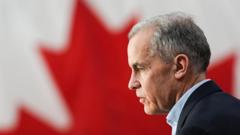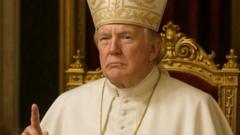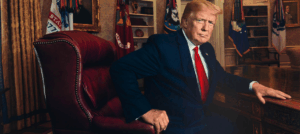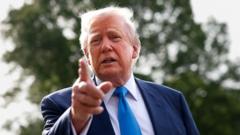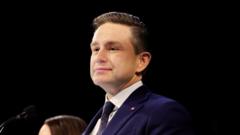The first debate for the Liberal Party leadership revealed candidates' positions on Donald Trump's potential return to the presidency, with a focus on strengthening international ties and addressing domestic issues including immigration and healthcare.**
Canadian Liberal Leadership Debate Highlights Concerns Over Trump’s Influence**
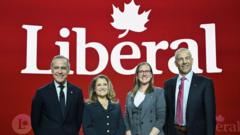
Canadian Liberal Leadership Debate Highlights Concerns Over Trump’s Influence**
Liberal Party candidates exchange views on U.S.-Canada relations amid domestic challenges during French-language debate.**
Candidates vying to lead Canada's Liberal Party confronted pressing issues in their first debate, dominated by concerns about the potential return of former U.S. President Donald Trump. The debate took place in French, featuring four prominent contenders: Mark Carney, former governor of the Bank of Canada; Chrystia Freeland, former Finance Minister; Karina Gould, Liberal House leader; and businessman Frank Baylis.
The critical discussion surrounding Trump's threats to impose tariffs on Canadian goods and his remarks about making Canada the "51st state" formed a significant portion of the debate. Freeland characterized Trump as "the greatest threat to Canada since World War Two," emphasizing her experience in negotiating with him during his first administration. "Trump wants to redraw our borders too," she insisted, warning that his second term could prove even more challenging for Canada.
The candidates introduced various strategies to counter these perceived threats. Freeland, alongside others, advocated for reinforcing trade relationships with nations such as the UK and the EU. Baylis went a step further by suggesting a new economic collaboration amongst Canada, the UK, New Zealand, and Australia, highlighting their shared values and governance.
Carney, currently leading in polls, placed his focus on leveraging Canada's resources to foster economic growth. He expressed the importance of transitioning Canada into a "superpower of clean energy" and indicated readiness to impose reciprocal tariffs if the U.S. carried out its leverage on tariffs against Canada. "He is more isolationist. He is more aggressive," Carney noted about Trump’s evolving stance.
Addressing domestic issues like health care, immigration, and military spending, candidates including Freeland and Carney advocated for revisiting key Trudeau-era policies like the carbon tax, which has suffered declining public support. Gould, aiming to secure support from younger voters, emphasized affordability as a central theme for her campaign.
The debate also touched upon the critical context of U.S. foreign policy towards Ukraine and Trump’s aggressive posture towards nations like Denmark over territories like Greenland. As the candidates exchanged proposals, discussions also included improving Canada’s military capacity and reducing the federal budget deficit.
The event set the groundwork for a second English-language debate and highlighted the contenders’ challenges against Conservative leader Pierre Poilievre, who currently leads national polls. With the leadership vote scheduled for 9 March, the Liberal Party’s decision will shape the direction of Canada under a new prime minister ahead of the upcoming general election, due by October 2023.

